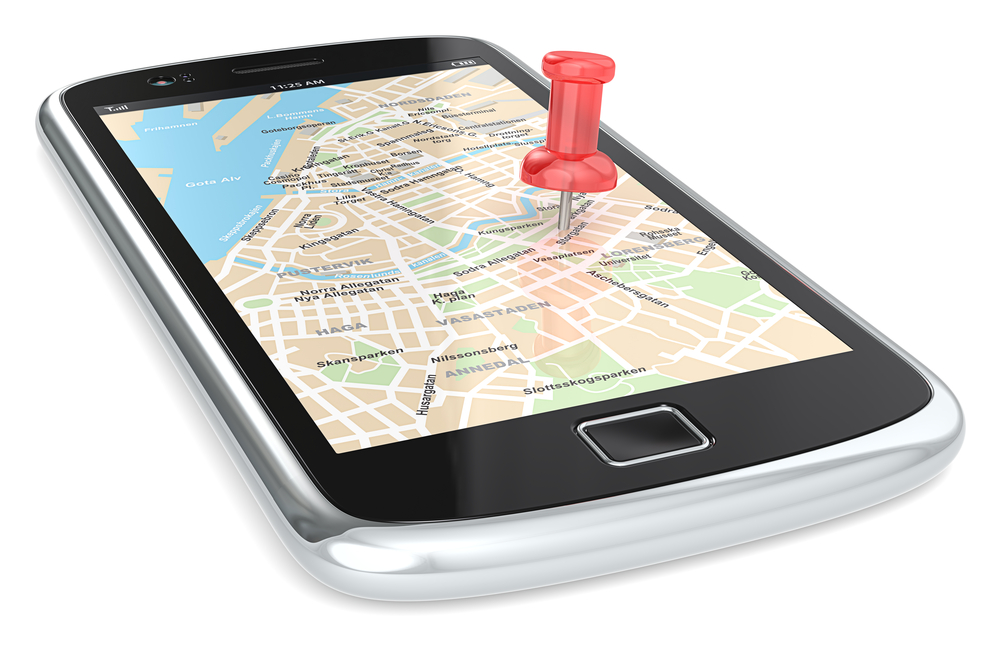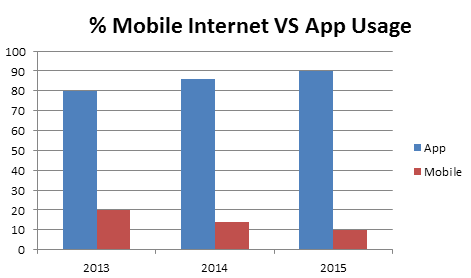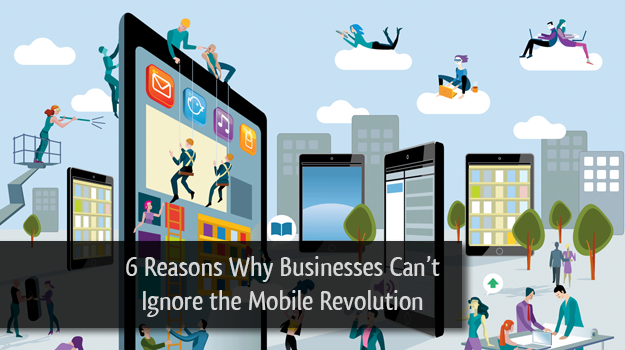If, when you think about surfing the net, you imagine someone sat with a laptop, then it is time to think again because the world is changing. The shift towards mobile technology is accelerating and in this article we’ll explain why you can no longer build your website solely around the needs of those with a bigger screen.
- More people are using mobile technology
The number of people using mobile technology has boomed. In the US, over 60% of people now use internet enabled mobile devices and in the UK, that figure is even higher, at 66%. In the 16-24 year old age bracket, it rises to over 90%. Even older people are pouncing on the new technology, with the percentage of 55-64 year olds using smartphones growing from 19% to 50% since 2012. And the figure is set to continue rising. The UK growth figures are dwarfed by the uptake in emerging markets. In countries like India and China where there are poor broadband and Wi-Fi infrastructures, mobile connectivity has boomed thanks to the development of 4G technology. Unable to get a good connection on their computers, phones are the predominant means of accessing the internet in many developing countries. Businesses that trade in these countries are left with little option but to focus on building websites that cater for the mobile user. - People are using mobile technology more than they use computers
Statistical data now shows that in developed countries where people usually own both a computer and a mobile device, their preference for accessing the internet is on mobile. According to Ofcom, mobile internet usage actually overtook desktop and laptop usage in 2014. Let’s look at some of the statistics. In 2010, the average American spent 2.4 hours a day on the internet using a computer and 0.4 hours using a mobile. Five years later, whilst the time spent on a computer had remained static, the time spent on a mobile had grown to 2.8 hours. In the UK, we only spend two hours a day surfing on a mobile device but this is twice what we spend on the computer. One of the primary drivers for this switch is 4G technology, which enables people to get similar levels of connectivity and speed whilst on the go as they do with Wi-Fi at home. As a consequence, we now access the internet everywhere. As we move from 4G to 5G and beyond and at the same time develop better Wi-Fi networks and mobile technology, the shift from computer to mobile will continue. So, not only are more people using mobile technology, they are using it more often. Again, the message for website owners is an obvious one.
One of the primary drivers for this switch is 4G technology, which enables people to get similar levels of connectivity and speed whilst on the go as they do with Wi-Fi at home. As a consequence, we now access the internet everywhere. As we move from 4G to 5G and beyond and at the same time develop better Wi-Fi networks and mobile technology, the shift from computer to mobile will continue. So, not only are more people using mobile technology, they are using it more often. Again, the message for website owners is an obvious one. - Mobile technology opens up new commercial opportunities
Being able to access the internet when on the go opens up unlimited possibilities in how we can use that technology. We shouldn’t assume that people will want to do the same things when out and about as they do at home. One trend which has grown out of the mobile revolution is for shoppers to use their mobile device in store. If they see an item they like, they’ll take out their phones to check out reviews and to see if they can find better prices elsewhere. If they do, they can buy it there and then and get it delivered within a day. This trend has led to a significant development in mobile technology from businesses. Shops that offer free in-store Wi-Fi or have apps with permission to know a customer’s location are now able to detect whether a customer is on site or in the vicinity and can send them special offers via mobile networks, Wi-Fi and Bluetooth. Some of this technology can even track whereabouts a customer is inside the shop, so if a customer spends 10 minutes looking at TVs in an electrical store they can be automatically sent an app notification offering them a 10% discount to encourage a sale. As they leave the store, they receive another text offering them two for the price of one on coffee from their favourite caf© which is just across the road. This isn’t the future of mobile technology it already exists. Retail tracking technology is already big business. Even when not in store, 80% of people will now order products though mobile devices because developments in mobile technology and responsive web design have made it easier to shop, pay and stay secure.
This trend has led to a significant development in mobile technology from businesses. Shops that offer free in-store Wi-Fi or have apps with permission to know a customer’s location are now able to detect whether a customer is on site or in the vicinity and can send them special offers via mobile networks, Wi-Fi and Bluetooth. Some of this technology can even track whereabouts a customer is inside the shop, so if a customer spends 10 minutes looking at TVs in an electrical store they can be automatically sent an app notification offering them a 10% discount to encourage a sale. As they leave the store, they receive another text offering them two for the price of one on coffee from their favourite caf© which is just across the road. This isn’t the future of mobile technology it already exists. Retail tracking technology is already big business. Even when not in store, 80% of people will now order products though mobile devices because developments in mobile technology and responsive web design have made it easier to shop, pay and stay secure. - The rise of the apps
The use of apps is another important reason why people are switching to mobile devices. You can now use apps to find a partner, book a restaurant for a first date, organise the wedding and book the honeymoon. And if it doesn’t work out, there’s an app for that too. There were over 100 billion apps downloaded worldwide in 2015 alone, in 2017, this is expected to rise to 268 billion; over 38 apps for every person on the planet. Not only are there more apps, we are increasingly using them. 90% of the time we spend on a mobile device is spent using an app for the UK, this is 60% of all our time spent on the internet.
There were over 100 billion apps downloaded worldwide in 2015 alone, in 2017, this is expected to rise to 268 billion; over 38 apps for every person on the planet. Not only are there more apps, we are increasingly using them. 90% of the time we spend on a mobile device is spent using an app for the UK, this is 60% of all our time spent on the internet. For those who trade online, this sends out important signals about the channels you need to create in order to develop your online business. Not only do you need a mobile friendly website, but you also need an app that can fulfill similar functions. If companies like Amazon and eBay are using apps as store fronts, then it is likely to be something that can benefit many ecommerce stores.
For those who trade online, this sends out important signals about the channels you need to create in order to develop your online business. Not only do you need a mobile friendly website, but you also need an app that can fulfill similar functions. If companies like Amazon and eBay are using apps as store fronts, then it is likely to be something that can benefit many ecommerce stores.
It’s not just ecommerce stores that need to think about developing apps. An increasing number of apps are used for commercial purposes; developing customer relationships, building brands, offering vouchers and discounts as well as straightforward shopping. Why go through the rigmarole of searching Google for a local curry house when you can launch Just Eat and have one ordered in a few minutes? One surprising statistic that should make any website owner sit up and take notice is that mobile users are three times as likely to buy as desktop or laptop users. This is very much down to the nature of how we use mobile devices differently to computers. If we are at home on the laptop we have time to research will often put the purchase off until we’ve had time to consider our options. When we are on a mobile device, we are more likely to be out and about and searching for something specific that we know we want to buy there and then. - Companies who don’t cater for mobile users are being down ranked
Perhaps the biggest indicator that mobile technology was taking over was when Google announced last year that it was changing its algorithm so that mobile friendly websites ranked higher than those that did not. Nicknamed Mobilegeddon by some, it was one of the few times that Google has given lots of notice to webmasters about algorithm change and the message was clear you need to have a responsive website otherwise, you will be down ranked. To encourage and help web owners, it provided free tools for them to use to see how mobile friendly their sites are and advice on how to make improvements. In conjunction with this, Google Search Console (formerly Webmaster Tools) added tools for mobile usability and offered information on both desktop and smartphone crawl errors. If you haven’t yet created a responsive, mobile-friendly website, chances are your organic traffic from Google and other search engines will have reduced. Going responsive should be a priority. - Even Google is modifying itself
Google is a website like any other and it too has begun making changes by starting to remove ads from the right side of its desktop search results. In future, it will only place ads at the top and bottom of the page. Google already has a responsive site, so there was no essential need to do this instead, it is a signal that it is changing its desktop design to look more like its mobile design. In this sense, the mobile mode is going become the new norm. And if Google does this, so will everyone else.
Conclusion
Mobile devices are now the main way we access the internet. More people have mobile devices and spend more time on them than we do on computers and when we are on them, nine times out of ten, we use an app. If you have an online presence then it is absolutely vital that it is set up to meet the needs of mobile users. You will need a responsive website and more than likely, an app too.


